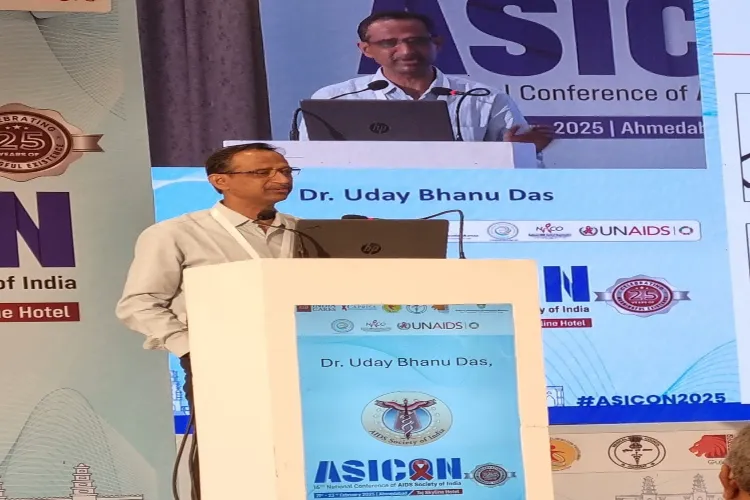
New Delhi
India is no longer reliant on foreign aid or funding for addressing the burden of AIDS, stated Dr Uday Bhanu Das, Deputy Director General of the National AIDS Control Organisation (NACO), under the Ministry of Health and Family Welfare, on Friday.
Speaking at the 16th National Conference of the AIDS Society of India, held in Ahmedabad, Gujarat, Das highlighted that a significant portion of funding for various AIDS programmes in the country now comes from the government.
“Currently, the National AIDS and STIs Control Programme of the Government of India receives 94 per cent of its funding from the government, with just 6 per cent coming from the Global Fund. It is important to recognise that the Government of India also financially contributes to the Global Fund as well as the WHO. We are no longer dependent on foreign aid or funding,” Das said.
Phase-V of the National AIDS Control Programme (NACP) aims to reduce annual new HIV infections and AIDS-related mortalities by 80 per cent by 2025-26 from the 2010 baseline value in the country.
Another key objective is to achieve the 95-95-95 targets by 2025, meaning that 95 per cent of all people living with HIV should know their status, 95 per cent of those who know their status should receive lifesaving antiretroviral therapy, and 95 per cent of those on treatment should be virally suppressed.
“In 2024-2025, 84 per cent of estimated people living with HIV in India were aware of their status, 86 per cent of them were on lifesaving antiretroviral therapy, and 94 per cent of them were virally suppressed,” Das said.
Globally, 86 per cent of people living with HIV knew their status, 89 per cent were on antiretroviral therapy, and 93 per cent of those on antiretroviral therapy were virally suppressed.
ALSO READ: Mohammed Shami recognized as India's undisputed ODI champion
“If we are to end AIDS, we have to ensure that all people with HIV know their status, 100 per cent of them are on lifesaving antiretroviral therapy, and 100 per cent of them are virally suppressed. This will ensure all people with HIV remain healthy and stop any further spread of infection,” said Dr Ishwar Gilada, President Emeritus of the AIDS Society of India (ASI).
According to NACO, when compared to 2010, HIV rates have almost halved in India by 2023 (a 44.23 per cent decline, which is higher than the global decline of 39 per cent in the same period) and AIDS-related deaths have declined by 79.26 per cent by 2023 (more than double the global decline of 51 per cent in the same period).
